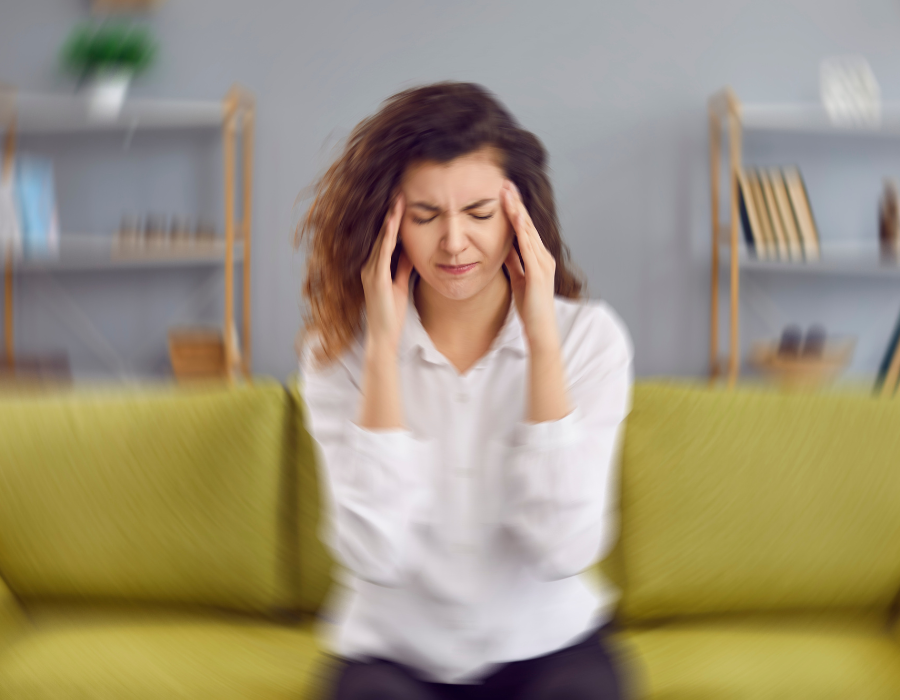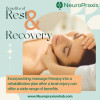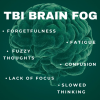Vestibular dysfunction is a condition that affects one’s sense of balance and coordination due to problems with their inner ear system. They arise from damage to the peripheral and/or central vestibular system and can cause balance deficits, vertigo, dizziness, vision impairments and/or auditory changes.
The balance organs in the inner ear (the “vestibular system”) encode head movement and generate rapid eye movement “vestibulo-ocular reflexes” and postural reflexes “vestibulo-spinal reflexes” that are important for maintaining clear vision and balance.
Vestibular dysfunction is most commonly caused by a traumatic brain injury, aging and viral infection. Other illnesses, as well as genetic and environmental factors, may also cause or contribute to vestibular disorders.
Symptoms of vestibular dysfunction include:
- Dizziness
- Feeling off-balance
- Feeling as if you are floating or as if the world is spinning
- Blurred vision
- Disorientation
- Falling or stumbling
- Visual Instability
Less common symptoms include:
- Nausea
- Diarrhea
- Vomiting
- Anxiety
- Fear
- Changes in your heart’s rhythm
Vestibular disorders are common among traumatic brain injury patients, and roughly 50 percent of traumatic brain injury patients experience vestibular features such as dizziness and balance/coordination impairments five years after injury.
While vestibular dysfunctions can have physical symptoms such as dizziness and nausea, they can also have a profound impact on an individual’s psychological wellbeing by attributing to anxiety, depression, panic, agoraphobia, post traumatic stress disorder, panic and cognitive defects.
The Impact on Quality of Life
Vestibular dysfunction can also have a major impact on quality of life. The uncertainty of when an episode might occur, combined with the fear of losing one’s balance or having to deal with dizziness, can lead to feelings of helplessness and isolation.
People with this disorder may not be able to work or will struggle in school due to their symptoms. They may have difficulty driving or participating in activities that require focus or physical activity. This can lead to feelings of frustration and hopelessness because they no longer feel able to do the things that once made them happy. Vestibular disorders can also affect relationships due to disruptions caused by dizziness or fatigue from treatment regimens.
Additionally, avoiding movements interferes with the body’s natural process of ‘recalibrating’. Exposure to environments that provoke disorientation and feelings of motion sickness encourage the body to change and adapt; a process commonly referred to as vestibular compensation.
The Impact on Mental Health
Vestibular dysfunction can have a significant effect on mental health. People with vestibular disorders may experience anxiety or depression due to the fear of falling, fear of future episodes, or feeling out-of-control in certain situations. They also may struggle with low self-esteem due to their inability to complete activities they once enjoyed. In addition, people with vestibular disorders are more likely to experience social isolation because they may be too embarrassed or frustrated by their symptoms to go out in public or engage in activities with others. People with vestibular dysfunction may find themselves canceling plans at the last minute. This can lead to feelings of guilt and frustration which often manifest into arguments between family members or friends who do not understand what it is like living with such a condition every day.
Other psychological effects include changes in self-image. Individuals may feel embarrassed or ashamed about their condition and try to hide it from others. They may also become overwhelmed by the thought of having to explain their condition to others which can lead to further social isolation. Furthermore, some people experience cognitive fatigue due to their constant state of alertness; this means that they are constantly on guard for signs that an episode is about to occur which can be emotionally draining over time.
Additionally, many people report feeling powerless due to the unpredictability of their condition; this leads them to feel like they have no control over their lives which can further increase feelings of depression and anxiety. This lack of control is often compounded by feelings of guilt; some individuals feel guilty because they are unable to keep up with family and friends who do not understand what they are going through. This guilt has been linked with worsening mental health outcomes such as suicidal ideation among those affected by vestibular dysfunction disorders.
Depression may follow as a result of not being able to do the things they used to do or take part in activities that bring them joy.
It is important for people living with vestibular disorders—and those who care for them—to recognize the psychosocial impact this condition can have on daily life as well as mental health and quality of life. People affected by vestibular disorders may experience anxiety, depression, guilt, frustration, and difficulty maintaining relationships due to its unpredictable nature and associated fatigue.
It is important for those affected by this condition seek help from both medical professionals specializing in vestibular disorders as well as mental health professionals in order treat both physical and psychological aspects of this condition effectively so that they can live their best lives despite having vestibular dysfunctions.
Resources:
now.aapmr.org/vestibular-dysfunction-after-brain-injury/
https://pubmed.ncbi.nlm.nih.gov/31201499/
https://www.ncbi.nlm.nih.gov/pmc/articles/PMC3810789/
https://www.hopkinsmedicine.org/health/conditions-and-diseases/vestibular-balance-disorder



